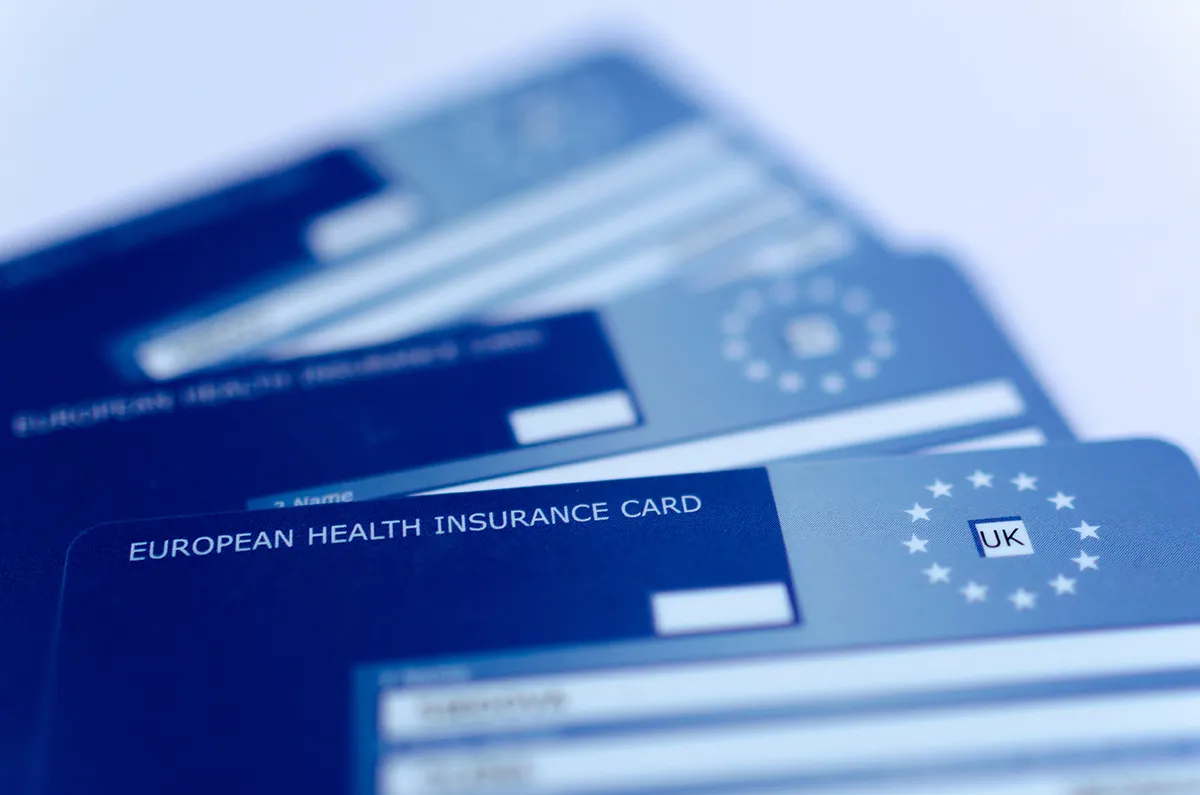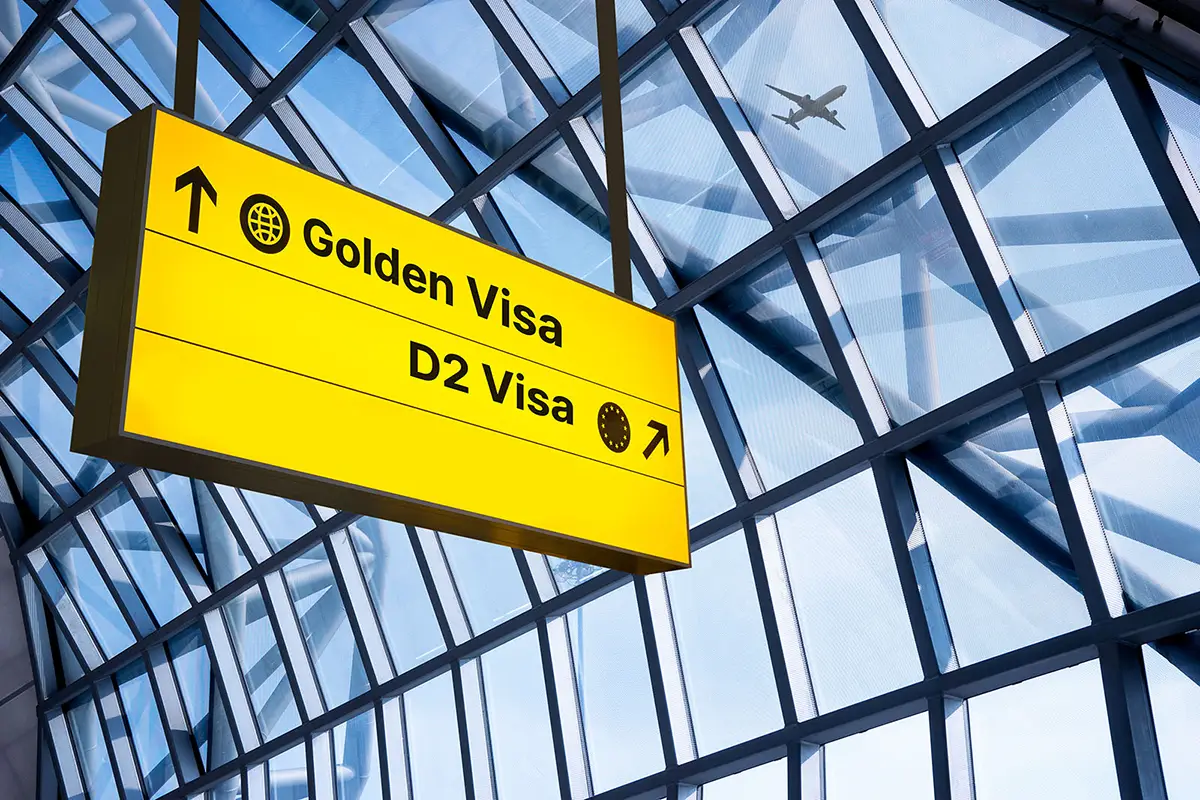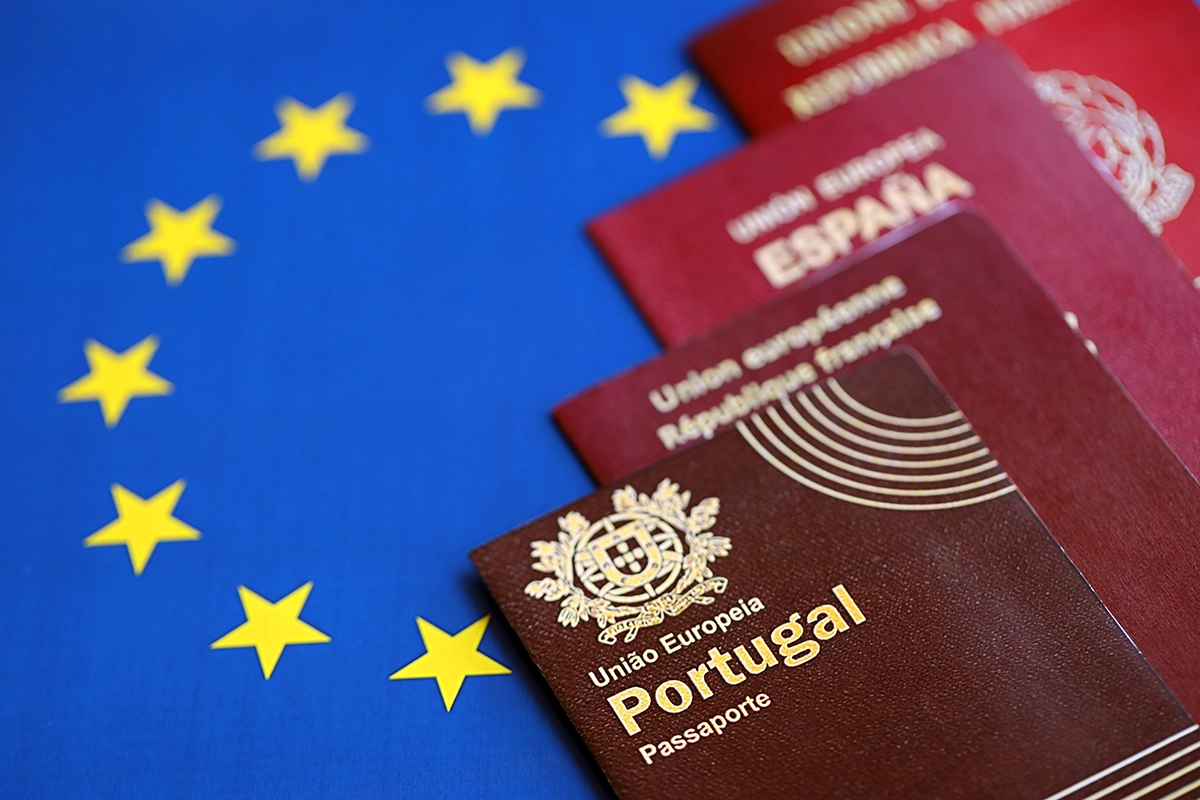Is Healthcare in Europe Free?
Healthcare in Europe is subsidized, not fully free.
EU Residents & Citizens fund public systems through taxes or social contributions, then pay small co-pays for many services and prescriptions, with exemptions in specific cases.
Rules and benefits vary by country, but in places like Portugal and Greece, you can access essential care at minimum-to-free out-of-pocket cost at public hospitals and clinics, depending on what your needs are and where you seek treatment.
You can just go to the nearest hospital or health center for medical treatment and recovery and not have to pay ridiculously large amounts of money for it.
In addition to public healthcare, many expats also add private health insurance, especially since it’s so inexpensive, with monthly fees starting at 30€ on average, to shorten wait times and choose English-speaking doctors. Premiums tend to rise with age and coverage level.
Universal Healthcare vs Free Healthcare in Europe: What’s the Difference?
Most European countries have universal healthcare, not fully free healthcare.
Universal Healthcare
- Every legal resident can access essential care because the system is funded by taxes or social contributions;
- Patients may still pay small co-pays (e.g., for prescriptions, specialist visits, some tests) or carry compulsory insurance in certain countries;
- Coverage levels and fees vary by country.
Free Healthcare
- All care is provided at no charge;
- In practice, this doesn’t really happen across Europe;
- Some services for children, maternity, chronic conditions, and low-income patients may be free, but most systems still include modest co-pays or insurance premiums.

How Does Universal Healthcare Work in Europe?
A free healthcare system is almost certainly universal, but a universal system is not necessarily free.
That is why, from now on, we will use Universal Healthcare System when referring to any system that is highly supported or established by the government.
That is because that affordability makes it highly accessible for the majority of citizens, which is what happens in many European countries.
There are a few types of frameworks used by nations and they mainly differ in the way they are funded and whether the infrastructure is government or privately owned and operated. Here is a brief comparison of different European Healthcare Systems based on their models.
Healthcare in Europe Models
| Model | Who Pays? | Typical Providers | Patient Costs | Examples in Europe |
|---|---|---|---|---|
| Beveridge Model | Government owns and runs public healthcare facilities | Public hospitals and clinics. Private providers also exist. | Low or no fees for most essential services. Co-pays for other services. | Portugal, Spain, the United Kingdom |
| Bismarck Model | Mandatory social insurance via payroll contributions to non-profit funds | A mix of public and private healthcare providers. Highly regulated by the government. | Part of gross pay is deducted for health insurance purposes. Small co-pays for appointments and treatments. | Germany, the Netherlands, France |
| National Health Insurance Model | The government pays for healthcare | Healthcare provided by private facilities | Small co-pays | Norway, Sweden, Denmark, Finland |

European Countries with Free Healthcare
Across Europe, “free healthcare” usually means tax-funded, universal systems with low costs for essential care.
Most countries still apply small co-pays for some prescriptions, tests, or private rooms.
Despite having “free healthcare” expat residents also often choose to keep a private plan for speed in booking appointments and broader provider choice.
As the waiting time to get treatment in public hospitals and clinics can be long, also counting on a private provider gives extra peace of mind as well as access to more comfortable installations and privacy if admission is necessary.
The fair cost of healthcare in Europe is, at the end of the day, an important source of quality of life and peace of mind.
There are also some reciprocal agreements between nations, including non-European countries, allowing citizens from both parties to get free assistance when visiting one another - something that you should look into before coming to Europe.
It is also important to know that if you are visiting the Schengen area as an out-of-EU tourist, it might be compulsory to purchase private travel insurance to cover possible medical costs for the whole duration of your stay.
Portugal
Portugal’s Serviço Nacional de Saúde (SNS) provides universal coverage funded mainly by taxation.
Healthcare is widely accessible through public and contracted providers.
USFs (Unidades de Saúde Familiar) are your basic healthcare centers, your equivalent to a GP in the UK, or where your PCP might be based in the US.
They are the main points of contact for basic care, while public hospitals are usually reserved for emergency care. generally low out-of-pocket costs (taxas moderadoras) compared with the U.S.
In Portugal, all legal residents are entitled to the same healthcare benefits as Portuguese citizens, as long as they have a social security number, and deductions are made from their wages.
Then, they must simply register with their local health center to obtain a Serviço Nacional de Saúde (National Health Service) user number to access a wide range of medical services.
In addition, many expat residents complement public care with affordable private insurance.
Average private insurance cost:
- €30–€150/month for an average adult. Amounts will alwasys vary depending on age and type of coverage, and whether it includes other family members.
Greece
Greece’s national system, ESY, follows the Beveridge model, offering universal coverage financed mainly through taxation.
While it includes statutory health insurance, this functions within a state-funded framework rather than the Bismarck social insurance model.
Care is delivered by a mix of public and private providers, and residents can access primary and hospital care across the national network.
Co-pays apply in certain cases, and private plans are common for faster appointments.
In Greece, expats who work in the country pay regular contributions to social security and may be able to enjoy full or subsidized health care benefits.
Average private insurance cost:
- €50–€150/month for an average adult. Amounts will alwasys vary depending on age and type of coverage, and whether it includes other family members.
Spain
Spain’s Sistema Nacional de Salud (SNS) is a tax-funded system offering broad access through public hospitals and local centros de salud (healthcare centers).
Residents benefit from comprehensive coverage across primary, specialist, and emergency care.
Small co-payments apply to certain prescriptions and non-essential services.
Many expats in larger cities opt for private health insurance to secure faster appointments and specialist access.
International rankings consistently place Spain among the top countries for healthcare quality and accessibility.
Average private insurance cost:
- €40–€120/month for an average adult. Amounts vary depending on age, coverage type, and inclusion of family members.
Italy
Italy’s Servizio Sanitario Nazionale (SSN) provides universal healthcare funded by taxation, ensuring access for all residents.
Primary and emergency care are widely available across the country, while co-payments (ticket) vary by region and service type.
Many residents and expats choose private policies to reduce waiting times for diagnostics, elective procedures, or specialist consultations.
Average private insurance cost:
- €50–€130/month for an average adult. Amounts vary depending on age, coverage type, and inclusion of family members.
France
France’s statutory healthcare system ensures universal coverage and partial state reimbursement for most medical services.
Residents typically hold a mutuelle (top-up insurance) to cover remaining out-of-pocket expenses and co-pays.
Renowned for its high-quality outcomes and extensive specialist access, France consistently ranks among the world’s best healthcare systems.
Average private insurance cost:
- €40–€120/month for an average adult. Amounts vary depending on age, coverage type, and inclusion of family members.
Germany
Germany’s universal healthcare system is built on statutory health insurance (SHI), funded through payroll contributions, and covers the majority of residents.
The system features regulated co-pays and a large provider network, ensuring consistent and high-quality care nationwide.
Private insurance is available for self-employed individuals or higher-income earners, offering broader flexibility and faster access.
Average private insurance cost:
- €70–€180/month for an average adult. Amounts vary depending on age, coverage type, and inclusion of family members.
The Netherlands
The Netherlands operates a mandatory basic health insurance model, requiring residents to purchase regulated private coverage from approved insurers.
Premiums are community-rated, with income-linked subsidies ensuring affordability and universal access in practice.
Deductibles and co-pays are set by law, creating a transparent and predictable system widely regarded for its efficiency and quality.
Average private insurance cost:
- €100–€150/month for an average adult. Amounts vary depending on age, coverage type, and inclusion of family members.
Nordics
The healthcare system in the Nordic countries - Sweden, Denmark, Norway and Finland - all operate very similarly to one another.
They are tax-funded universal healthcare systems with low to minimum costs.
Strong primary care networks ensure efficient service delivery, while public hospitals maintain exceptional outcomes across preventive and specialist care.
Private insurance add-ons are used primarily to shorten waiting times or access elective services.
Average private insurance cost:
- €30–€100/month for an average adult. Amounts vary depending on age, coverage type, and inclusion of family members.
Healthcare in Europe vs US
The U.S. healthcare system is a mixed model, blending elements of public and private insurance without achieving universal coverage.
Medicare and Medicaid are publicly funded programs serving specific groups such as seniors, low-income individuals, and people with disabilities. However, these account for only a portion of the population.
Most Americans rely on private health insurance provided through employers, while many others face out-of-pocket payments as their only option for care.
As a result, the United States does not offer universal healthcare, and access often depends on employment or financial status.
In contrast, most European countries provide universal healthcare, either through tax-funded systems (Beveridge) or statutory insurance models (Bismarck).
While healthcare in Europe is not always free, it remains affordable and accessible according to income.
It's little surprise so many Americans look to Europe for a life change or for retirement, as being able to have medical care with no major worries on how this will affect your present and future finances poses as a major boost in quality of life.
Especially when you know that the healthcare service and staff that you will find are world renowned for their quality.

Does Europe Have Good Medical Care?
Yes, Europe is known for its advanced and established healthcare systems, with high-quality medical services and cutting-edge technology being found in hospitals and clinics.
According to CEOWorld's 2025 Health Care Index, which assesses how healthy people are and have access to necessary services in 110 countries, European nations continue to perform amazing when it comes to healthcare.
Europe places five nations among the top 10 globally: Sweden (#5), Ireland (#6), The Netherlands (#7), Germany (#8), and Norway (#9).
In the broader top 20, other European countries include Belgium, Switzerland and Finland.
Meanwhile, Portugal achieved a score of 51.99 and ranked #20 overall. Greece placed not too far off, at #28 with a score of 46.24.
 In Europe, doctors and nurses are also highly skilled and knowledgeable, as they undergo many years of training in some of the top universities in the world.
In Europe, doctors and nurses are also highly skilled and knowledgeable, as they undergo many years of training in some of the top universities in the world.
In its latest published statistics on physicians in Europe, Eurostat stated that there were an estimated 1.83 million practicing physicians across the continent in 2022.
Among the EU Member States, Portugal had the highest number of physicians relative to population size (304.3 per 100.000 inhabitants).
This ratio of the number of physicians per 100.000 inhabitants increased in nearly all of the EU Member States between 2012 and 2022, which shows that despite being very well established, the multiple European Healthcare Systems are constantly growing, in an attempt to best serve the need of the population living in the continent.
In countries like Portugal, the healthcare users are ideally assigned a primary care physician, the equivalent of a General Practitioner, commonly referred as a family doctor.
As the name implies, those physicians are responsible for the care of all members of the same family unit, giving general assistance, consultation and treatment prescriptions.
However, even patients who do not have a PCP or GP assigned for some reason, can turn to any public hospital for assistance and they will get medical care, nonetheless.
The European Health Insurance Card
If you are already a resident of the European Union, or if you become one, you can apply to get a European Health Insurance Card.
This free card gives access to state-provided healthcare, when medically necessary, during a temporary stay in any of the 27 EU countries, as well as Iceland, Liechtenstein, Norway, Switzerland and the United Kingdom.

Those cards are issued by the national health provider of your country of residency and are intended to be used in unforeseen events and will not cover the costs of those traveling for the express purpose of obtaining medical treatment.
The European Health Insurance Card does not guarantee free services, but it does enable you to use the national healthcare system under the same conditions and at the same cost as people insured in the country you are visiting.
Residency in Europe: a Great Investment in Health and Quality of Life
With all main European countries having established and very well-prepared universal healthcare systems, as well as affordable private insurance, is no wonder why so many Americans and people from all over the world are keen to move to Europe.
Setting up residency in Europe means enjoying a higher quality of life while also ensuring that your family’s health will be well taken care of without any major financial constraints.
If you are interested in making that move, the Investment Visa team is ready to assist and help you find out what is the best and fastest way to make your investment take you to your life goals.
Reach out to us and let us guide you through this process smoothly and seamlessly.



































































































































